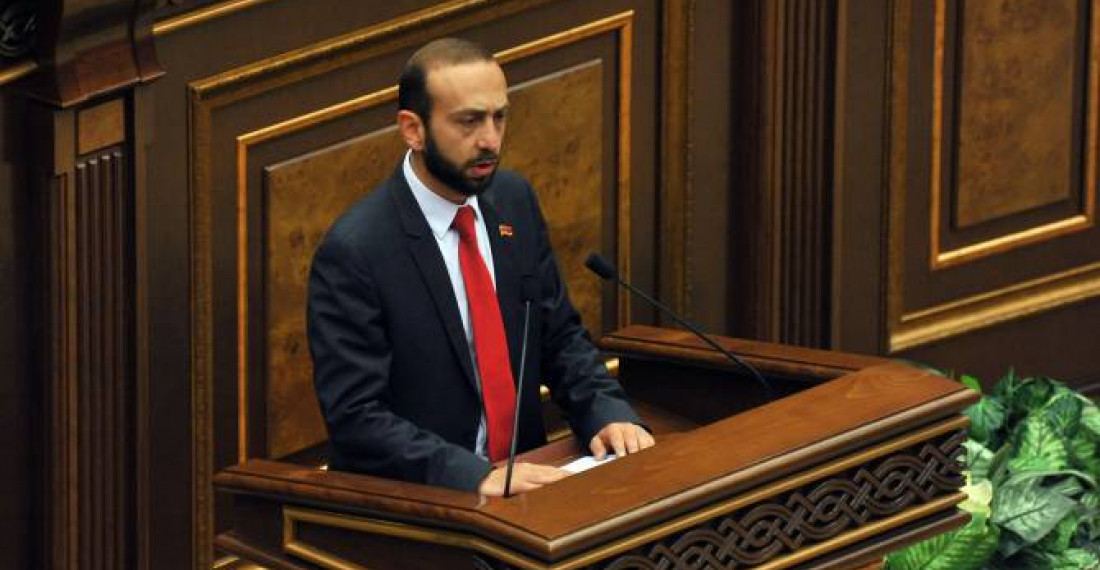The Armenian parliament has elected Ararat Mirzoyan as Speaker of Parliament. Mirzoyan was until recently First Deputy Prime Minister.
The Armenian Parliament met for its first session on Monday (14 January), following early parliamentary elections held on 9 December which resulted in a landslide victory for the My Step alliance led by prime minister Nikol Pashinyan. The new parliament consists of 132 MPs. Apart from the My Step alliance which has 88 MPs, two other political parties are represented in the parliament, namely the Prosperous Armenia Party with 26 MPs and Bright Armenia with 18 MPs.
The first session was chaired by the oldest MP, 74 year old Kynyaz Hasanov, who is an MP representing the Kurdish minority and sits as part of the My Step faction in the parliament.
At the start of the proceedings the president of Armenia, Armen Sargessian, made a short speech in which he said that the task of implementing the promises and visions resulting from the intense political process in the country in 2018 had now started. President Sargsian said:
"The first Article of the Constitution declares the Republic of Armenia as a sovereign, democratic, social state governed by the rule of law. This provision is not a recording of fact, but a key principle, goal for a state. A goal which can never be considered as completely implemented. A goal which must be achieved by constant improvement and passing through a long path. Therefore, numerous and major reforms still need to be done in all spheres for creating new Armenia. Guaranteeing prosperous and dignified life for all people living in Armenia remains a priority task. Currently, not enough importance to these rights is given both at the legal and practical platform. In new Armenia the person's economic, social, cultural, educational rights and freedoms must be a key part of the human dignity. The legal acts and actions of public bodies must be based on this perception".
After the speech of the president, the members of parliament were sworn in.
Shortly after the session of parliament started, and according to the constitutional rules that stipulate that the person holding the trust of the majority of those elected to parliament be appointed as prime minister, president Armen Sargessian appointed Nikol Pashinyan as prime minister of Armenia. The prime minister is expected to form the new government in the next few days.
source: commonspace.eu with agencies
photo: Ararat Mirzoyan (archive picture)







